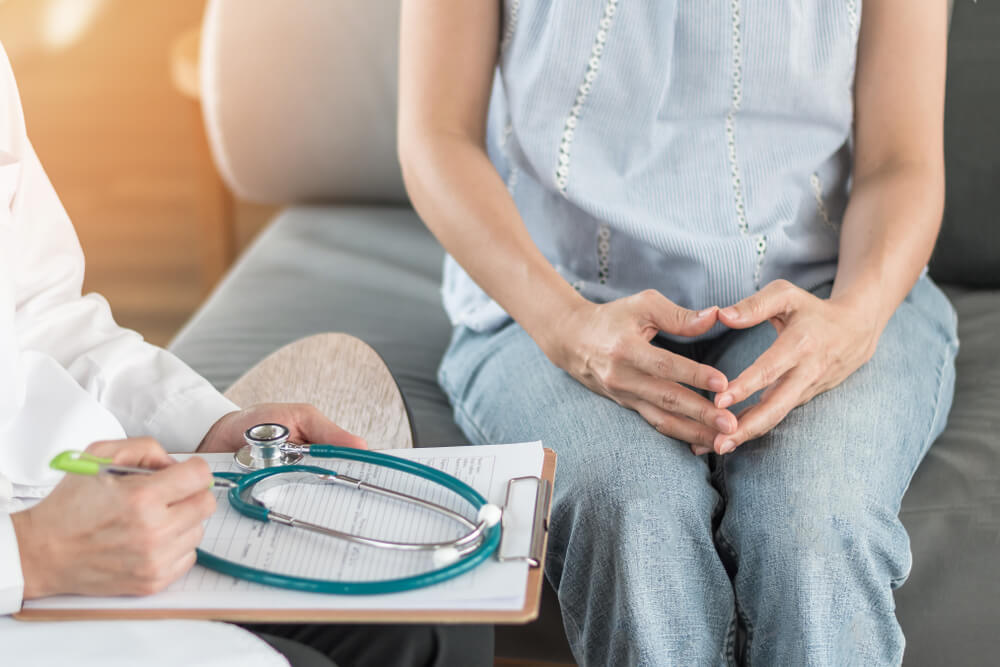Endometriosis, a medical condition where tissue similar to the lining inside the uterus grows outside of it, affects many women worldwide. While its physical symptoms are frequently discussed, the impact on mental health is an equally significant aspect that requires attention. At ACE OBGYN, we’ve noticed a growing number of patients discussing emotional and psychological challenges tied to their endometriosis. Let’s delve into the intricate relationship between endometriosis and mental health.
Endometriosis and Its Direct Link to Mental Health

#image_title
The Emotional Toll of Chronic Pain
Endometriosis is often associated with chronic pain, and living with such persistent discomfort can be emotionally draining. Constant pain can lead to feelings of helplessness, frustration, and even endometriosis depression.
Fertility Concerns and Emotional Well-being
Many women with endometriosis face fertility challenges, and this can significantly impact their mental health. The emotional roller-coaster of trying to conceive, paired with the condition’s pain, can be overwhelming.
Endometriosis Mood Swings: A Closer Look
Endometriosis mood swings are not uncommon. Hormonal fluctuations, which are intrinsic to endometriosis, can lead to significant mood variations. It’s not just about the pain; the body’s chemical balance also plays a role in emotional changes. These mood swings can disrupt daily life, strain personal relationships, and contribute to feelings of instability.
Endometriosis and Anxiety: The Underlying Connection
Women with endometriosis often report feelings of anxiety. This endometriosis and anxiety link can be attributed to several factors:
- Uncertainty about the Future: Worries about fertility, the progression of the disease, or potential surgeries can create a cloud of anxiety.
- Social Isolation: Due to pain or fatigue, many women might avoid social interactions, leading to feelings of loneliness and heightened anxiety.
- Bodily Tensions: Chronic pain can cause physical tension, which in turn can exacerbate feelings of anxiety.
Endometriosis Personality Changes: Why They Occur
Another less-discussed aspect of the condition is endometriosis personality changes. Constant pain and related stress can make a person more irritable, less patient, or even lead to withdrawal from loved ones. Over time, these shifts in personality can impact one’s self-image and interpersonal relationships. Recognizing these changes is the first step towards addressing and managing them.
Endometriosis Depression: Navigating the Emotional Abyss
Depression is a significant concern for those with endometriosis. The interplay of chronic pain, potential fertility issues, and hormonal imbalances can create a perfect storm for endometriosis depression. It’s crucial for women to recognize these feelings and seek support, be it through therapy, support groups, or medical interventions.
Seeking Support and Breaking the Stigma
It’s essential to remember that mental health challenges related to endometriosis aren’t a sign of weakness. Breaking the stigma around endometriosis and mental health is crucial:
- Open Conversations: Talking about endometriosis-related mental health issues can provide relief and foster understanding.
- Professional Help: Consider seeking therapy or counseling to navigate the emotional challenges of endometriosis.
- Join Support Groups: Connecting with others who understand your journey can be comforting and enlightening.
The Hormonal Link to Mental Well-Being
One cannot discuss endometriosis without addressing the hormonal aspect. Endometriosis often leads to hormonal imbalances due to the growth and behavior of endometrial-like tissues outside the uterus. These imbalances can directly impact mood and emotional well-being. For instance, estrogen, which plays a vital role in endometriosis, is also linked to serotonin, the ‘feel-good’ neurotransmitter. Imbalances in estrogen can lead to disruptions in serotonin levels, which might manifest as mood disturbances or depressive symptoms in some women.
The Impact on Relationships and Intimacy
Endometriosis can significantly influence intimate relationships. The chronic pain and discomfort associated with the condition can reduce sexual desire and lead to painful intercourse. This physical aspect, combined with endometriosis mood swings and emotional challenges, can strain relationships. Partners might feel helpless or left out, leading to feelings of isolation for both. It’s essential to foster open communication and perhaps seek couples counseling to navigate these challenges together.
The Socioeconomic Implications and Mental Health
Living with endometriosis can also have socioeconomic implications. Frequent medical appointments, potential surgeries, and days off from work due to debilitating pain can impact a woman’s financial stability. This added financial stress can exacerbate feelings of anxiety and depression. Moreover, the societal pressure on women to bear children, combined with potential fertility challenges posed by endometriosis, can further strain one’s mental health.
Self-Care and Coping Strategies

#image_title
Incorporating self-care is crucial for women with endometriosis. Activities like meditation, gentle exercise, journaling, or even engaging in hobbies can provide a much-needed respite from pain and stress. Some women find solace in alternative therapies like acupuncture or aromatherapy. While these methods might not directly treat endometriosis, they can offer emotional relief and a sense of control over one’s body and feelings. It’s about finding what works best for each individual and creating a personalized coping toolbox.
The Role of Diet and Endometriosis
While the exact cause of endometriosis remains elusive, some research suggests that diet might play a role, not just in the condition’s manifestation, but also in its impact on mental health. Inflammation is a common thread in endometriosis, and certain foods can either exacerbate or mitigate inflammatory responses. For instance, foods rich in omega-3 fatty acids, like fish and flaxseeds, can have anti-inflammatory properties. On the other hand, excessive consumption of processed foods or those high in trans fats might aggravate inflammation. There’s also emerging evidence to suggest that gut health can influence mental well-being. A diet that promotes a healthy gut may inadvertently also support better mental health, offering a dual benefit for those with endometriosis.
Cultural Perspectives and Endometriosis
The experience of endometriosis can differ widely based on cultural and societal contexts. In many societies, there’s a taboo surrounding menstrual health, and conditions like endometriosis aren’t openly discussed. This can lead to delays in diagnosis and feelings of isolation for those affected. Furthermore, cultural interpretations of pain and womanhood can either validate or diminish a woman’s experience. In some cultures, pain associated with menstruation is seen as a “normal” part of womanhood, potentially leading to underdiagnoses of conditions like endometriosis. Recognizing these cultural nuances is essential, as it can influence both the medical care received and the mental health support needed.
The Power of Awareness and Advocacy
The awareness surrounding endometriosis has grown in recent years, thanks in large part to advocacy efforts by affected individuals and supportive organizations. As more people share their experiences and stories, the veil of mystery around the condition is slowly being lifted. This increased awareness is not just beneficial for diagnosis and treatment but also plays a pivotal role in mental health. Knowing that one is not alone in their journey, that their pain and emotions are valid, can offer immense solace. Additionally, as endometriosis gains more visibility, there’s hope for better research, improved treatments, and more holistic care approaches that address both physical symptoms and mental health implications.
Conclusion: A Holistic Approach to Endometriosis
Addressing the mental health implications of endometriosis is as crucial as treating its physical symptoms. By understanding the profound impact on emotional well-being, women can better advocate for their overall health. In the journey of managing and understanding endometriosis, a holistic approach that includes both physical and mental health care is essential.

